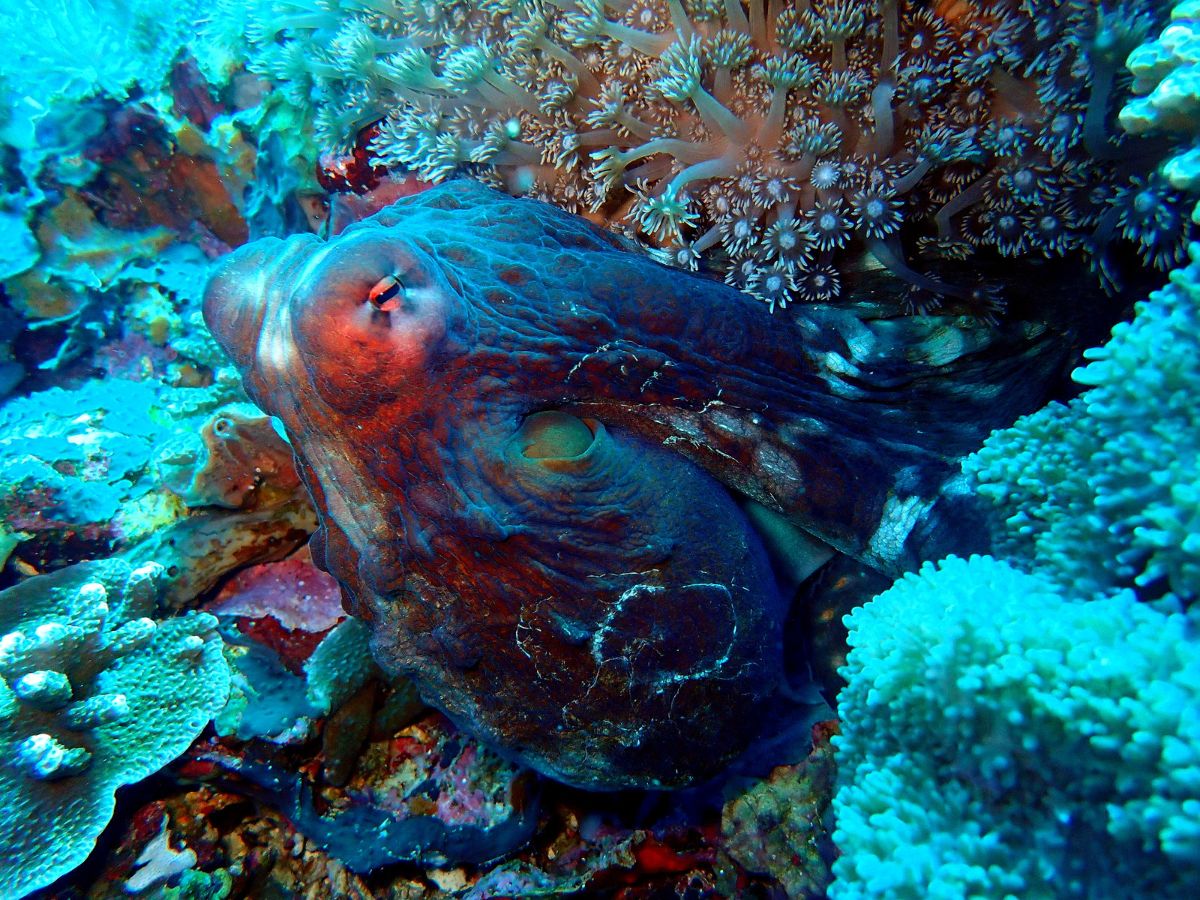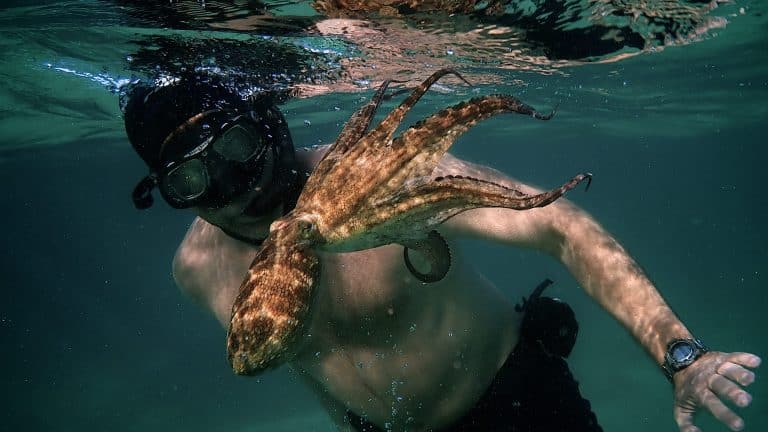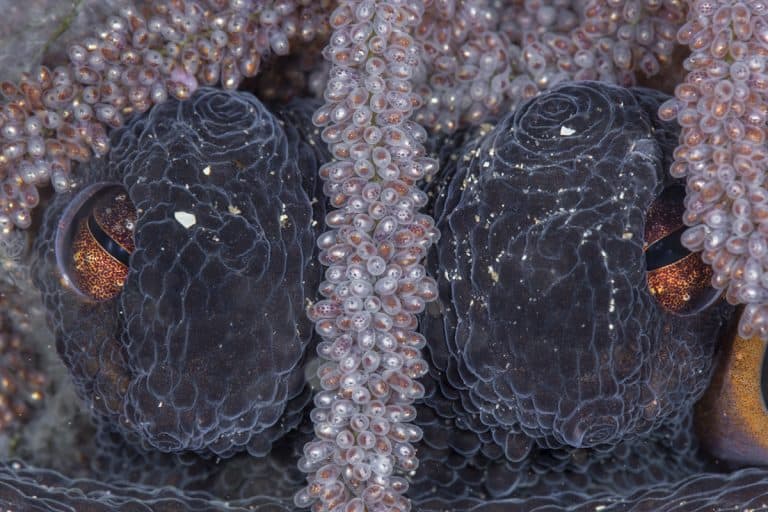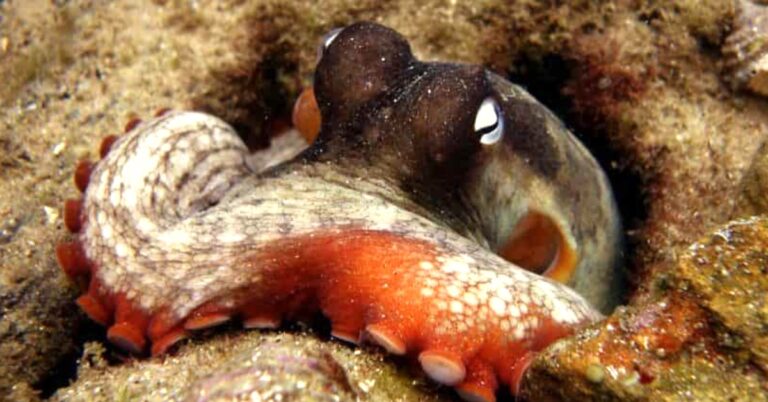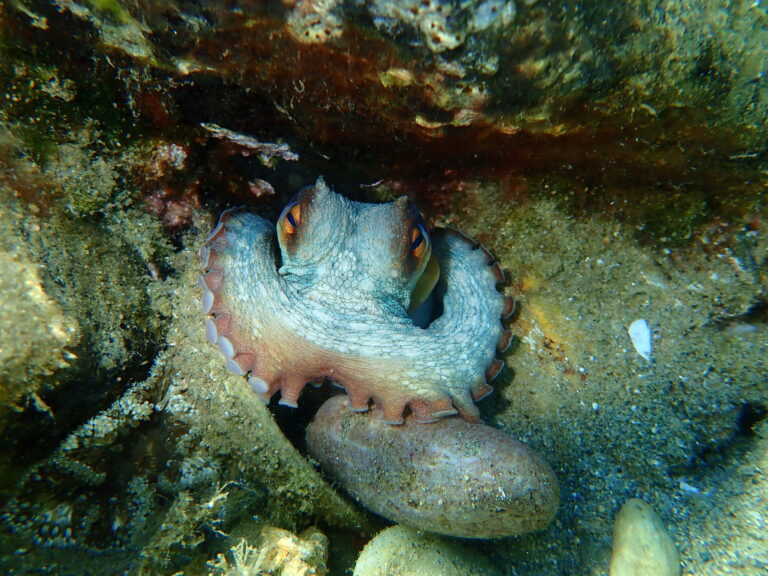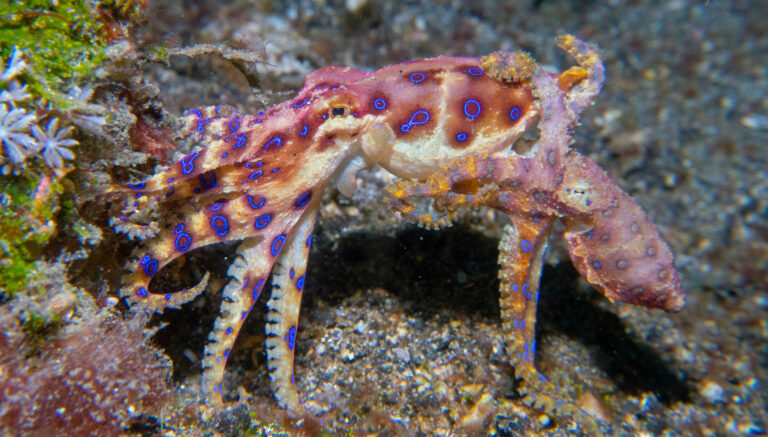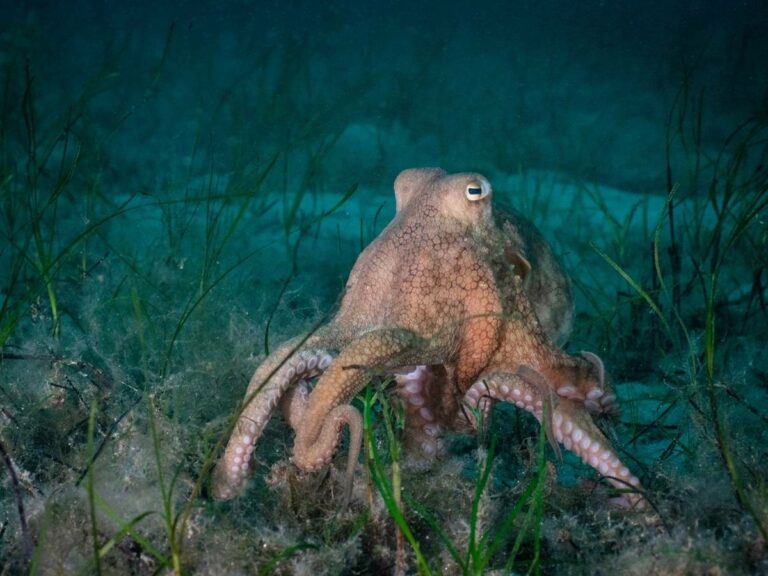Are Octopuses Vertebrates or Invertebrates?
Octopuses are squishy, boneless INvertebrates, which means they don’t have a backbone. Keep reading to learn more about the difference between vertebrates (like humans) and invertebrates (like octopods)!
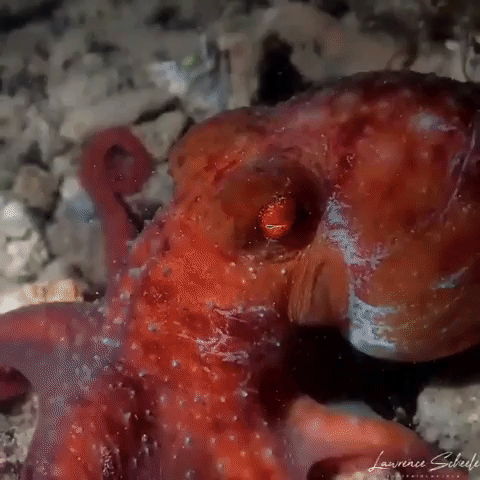
Who runs the world? Inverts!
Invertebrates outnumber vertebrates on Earth by far. In fact, more than 90% of the organisms on Earth are invertebrates! Invertebrates or “inverts” are an extremely diverse and numerous group of organisms, ranging from insects and spiders on land to sea jellies, corals, crabs and shrimps, and octopuses in the ocean.
Despite their diversity, invertebrates as a group have a couple of things in common.
First and foremost, none of them have a backbone—also known as a vertebral column. Some inverts, like octopuses, lack a hard skeleton altogether, while many other inverts have an exoskeleton—a tough outer shell for protection.
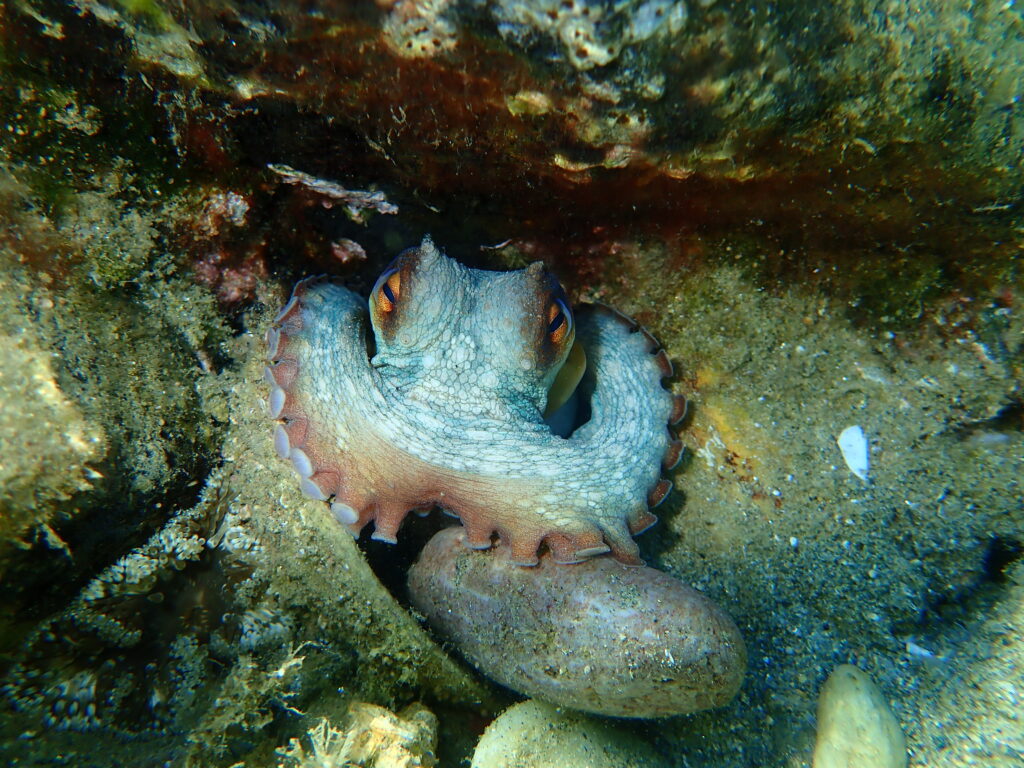
But why is the presence or lack of a backbone so important?
Don’t underestimate the impact of a backbone on organisms’ body plans!
Because they lack backbones, there is no typical invertebrate body plan. Think sea jelly, Giant Pacific Octopus, glass sponge, sea star—they’re all invertebrates, but they have vastly different body plans.
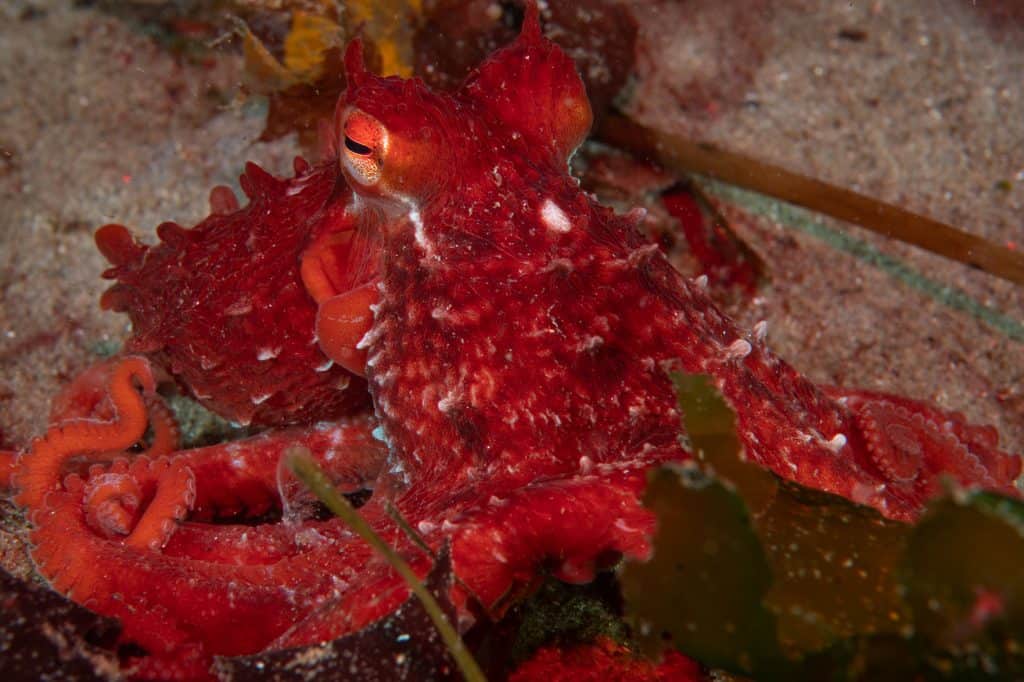
Despite their array of body plans and shapes, invertebrates’ bodies tend to be simpler than vertebrates, both in structure and function. However, octopuses are among the smartest and most complex inverts on Earth (possibly THE smartest inverts on Earth)!
Invertebrates have something else in common, too: they’re ectothermic or cold-blooded! This means invertebrates can’t regulate their own body temperatures, and their bodies are the same temperature as their environment.
🐙 Octopus Fun Fact
The largest invertebrates on Earth are deep-sea cephalopods … not octopuses, but squids! The giant squid can be over 40 feet long, and the colossal squid can weigh more than 1,000 pounds!
Let’s compare invertebrates with vertebrates!
Now that you know about invertebrates, here’s some info about vertebrates to make sure you know exactly why octopuses do NOT fit in this camp.
Vertebrates include:
- Mammals
- Fishes
- Birds
- Reptiles
- Amphibians
As backboned creatures, vertebrates tend to have similar body plans since they’re all organized around a vertebral column.
Vertebrates have endoskeletons, internal skeletons made up of bones or cartilage. In general, vertebrates also have more complex body systems (e.g., circulation and respiration) compared to invertebrates.
🐙 Octopus Fun Fact
For octopuses, there are benefits to having no backbone (or bones at all!), including being able to stuff themselves into ridiculously small crevices.
Octopuses have been known to squeeze through holes just an inch in diameter! All because they lack bones. They gain their structural support through muscular hydrostats, like a human’s tongue or an elephant’s trunk.
TLDR:
So are octopuses vertebrates or invertebrates? Octopuses are invertebrates because they don’t have a backbone.
If you enjoyed this post, check out this one on whether octopuses are dangerous!
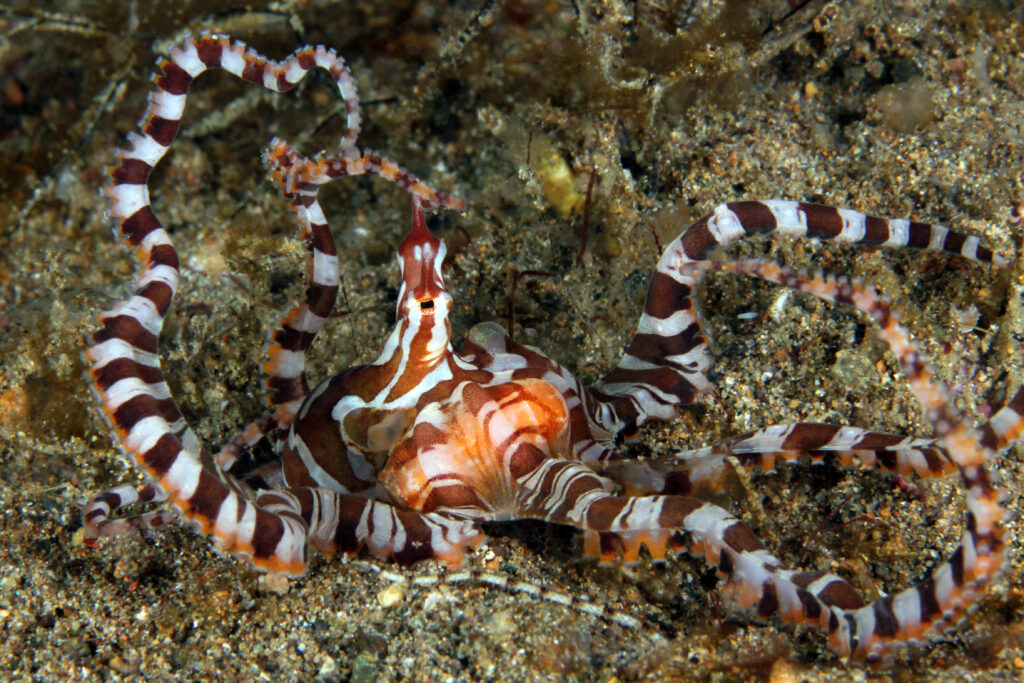
If you want to educate yourself some more about all sorts of different cephalopods, take a look at our encyclopedia. Or, what we call it, our Octopedia!
Connect with other octopus lovers via the OctoNation Facebook group, OctopusFanClub.com! Make sure to follow us on Facebook and Instagram to keep up to date with the conservation, education, and ongoing research of cephalopods.
More Posts To Read:
- What’s The Difference Between Cuttlefish vs. Octopus?
- Can An Octopus Regrow Its Arm?
- How Do Octopus Breathe?
- Which Direction Is The Front Of An Octopus?
- Is There Such Thing As A Freshwater Octopus?

Bethanie Hestermann is a freelance writer and author of animal-science books, including Zoology for Kids and Marine Science for Kids. She is a contributing writer for OctoNation! You can find all her books at www.zoologyforkids.com/books.
